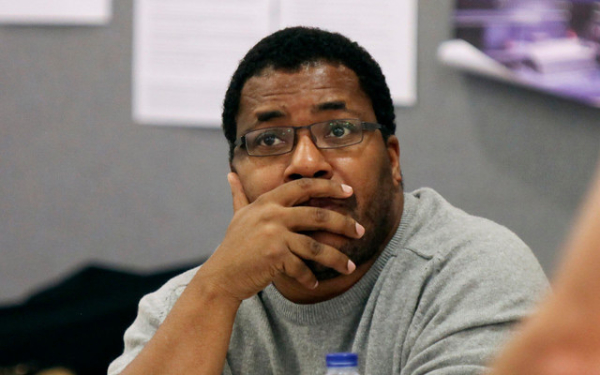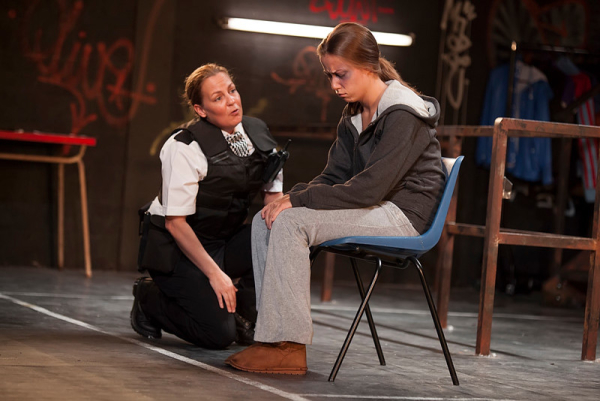Roy Williams: 'I find it difficult to condemn the police'
The award-winning playwright has turned his spotlight on the Metropolitan Police with his new play ”Wildefire”, which premieres at Hampstead Theatre this week

© Ellie Kurttz
What drew you to the police force as a dramatic subject?
I've had a curiosity about the police swirling around in my mind for quite some time. I have met policemen over the years and done a lot of research, so thought I should put all that to good use. In light of what's been happening in the last few years, especially the riots, they've been under a lot of scrutiny. I'm particularly intrigued by the question, what kind of police force do we want?
The title, Wildefire, is a reference to the title character Gail Wilde – what kind of person is she?
She's a police officer who wants to do the right thing. She's very idealistic, but the way the Met is set up it's hard for her to carry that through. Her story is a metaphor for how the police currently views itself, and how the public views it.
Were you keen to give the police a fair hearing in light of recent news coverage?
I've certainly tried to show a level of understanding and tell the story for their point of view. I was keen to articulate the idea that, whatever we feel about the police, they have a very tough job. They have to deal with the worst sides of human nature every day and sometimes it's easy for us to overlook and underestimate that. I find it difficult to completely condemn them, as some people do.
You mentioned that you interviewed a number of police officers; have you used any verbatim text?
I have used the research in terms of telling the story, but it's not a verbatim piece. It's very character led, heavily based on a lot of stuff that cops have told me. We've also had police officers in rehearsals, helping us to keep it up to date in terms of what they do and say. It keeps the language fresh.

© Ellie Kurtz
This is your second collaboration with director Maria Aberg – what makes her so good to work with?
She's a bloody good director, simple as that. I enjoyed working with her the first time [on Days of Significance at the RSC] and I was looking forward to working with her again. She is a terrific director and she works extremely well with writers. So when the Hampstead recommended her it was a no brainer.
What made Lorraine Stanley right for the title role?
Funnily enough she played the same character in Days of Significance, though it was a very brief appearance in the opening scene. I thought it would be fun when I was working on this play to develop the character and build the story around her, and it made sense for Lorraine to come back and play her. She's a terrific actress, really bold and intense.
Hampstead Theatre is enjoying a rich run of form recently
They're doing good work, which is great to see. I've had two plays on at Hampstead previously, and I used to be a script reader for them many years ago, so I've seen it evolve over many years. When Ed [Hall] took over he called me and said he'd like to commission me, and out of those discussions came Wildefire.
What's your writing process?
Finding ideas is the easy part. I look around at what's going on in the world and I latch onto it. But then I need to find a character that can be my key to unlocking the door. Until I find that, I struggle. With Sucker Punch, for example, it took me a long time to find my way into that world. With Wildefire I was lucky that I already had the character to help me.
What's next?
My version of Antigone is currently on tour until the new year. And looking further ahead I've got a new play I'm writing for the Royal Court – I'd love to tell you more details but it keeps changing every day!












